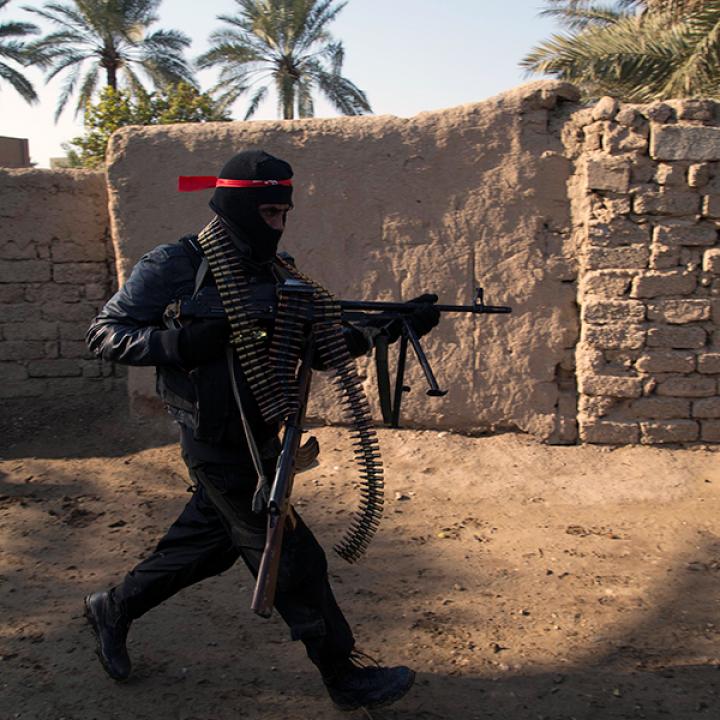
- Policy Analysis
- Articles & Op-Eds
Mini-Hizballahs, Revolutionary Guard Knock-Offs, and the Future of Iran's Militant Proxies in Iraq

There is still time to offset the gains that Iran’s proxies have made in the past three years, but only if Baghdad continues resisting the creation of a permanent, well-funded security institution that operates outside the Iraqi chain of command.
As the war against the Islamic State enters the final stretch, with less than a quarter of Mosul left to liberate, the Iraqi government must decide whether to allow a residual U.S. military support mission to stay on in Iraq. Iranian-backed Iraqi Shiite militias have already weighed in on the matter. In early May 2017, Jafar al-Hosseini, a spokesman and senior commander of the Kata'ib Hizballah militia, told Iranian state media: "If [the] Americans fail to leave Iraq [following the defeat of Islamic State] they will be in the crosshairs of the Iraqi Islamic resistance." Statements such as these, delivered confidently with little fear of government reproach, raise the question: Who is really in charge in Iraq?
The future of Iraq's Hashd al-Sha'abi, or Popular Mobilization Forces (PMF), and their constituent militias is one of the most consequential policy challenges facing the Iraqi government and its coalition partners. The PMF played a crucial role in stemming the Islamic State advance in June 2014, eventually incorporating both Shiite and non-Shiite fighters. But the PMF consist of diverse elements. These include Iranian-backed Shiite militias, "shrine PMF" (whose leaders were selected by the quietist Shiite clergy in Najaf), and Sunni PMF. The latter two groups are assets for Iraq that will hopefully be incorporated into the Iraqi Army, Counter-Terrorism Service and police forces. The Tehran-backed PMF, however, are a different matter, and their future is a source of acute concern for Washington...
Read the full article at the War on the Rocks website.
War on the Rocks





